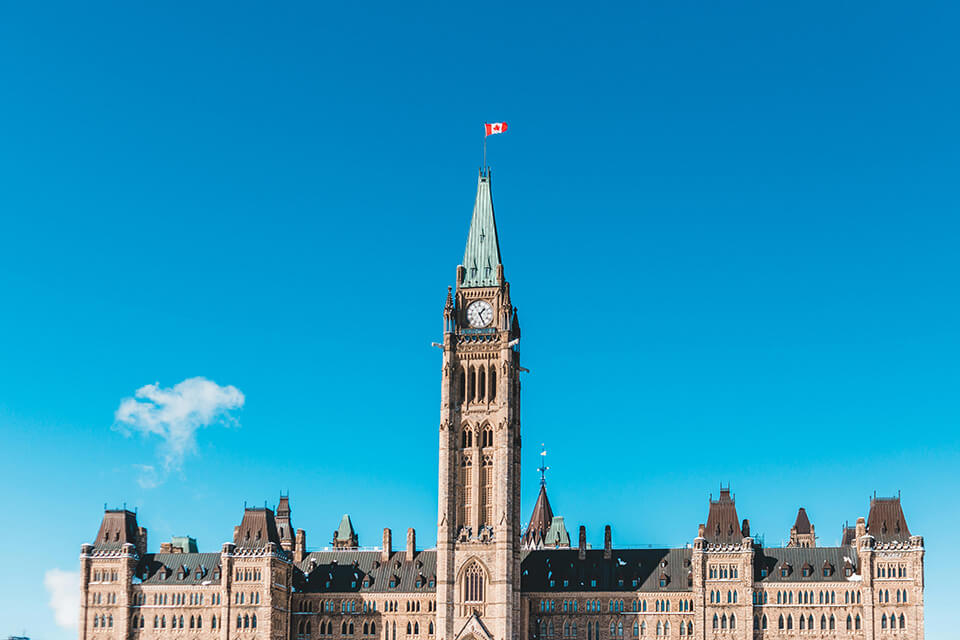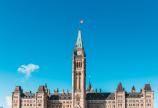Experts on 2024 federal budget
Fine Arts, Engineering, Social Sciences, Science, Human and Social Development, Education, Peter B. Gustavson School of Business

The following University of Victoria experts are available to media for comment about the federal budget, which is expected to be tabled on April 16.
Julia Baum (Biology) is an expert in marine ecology and conservation and a UVic President’s Chair. She is the director of Coastal Climate Solutions Leaders (CCSL), a first-of-its-kind Canadian graduate training program that prepares students to tackle the climate crisis head-on. She can discuss the impacts of human-caused climate change on marine ecosystems and people and ocean climate change solutions. (Contact: 250-858-9349 or baum@uvic.ca)
Lisa Bourque Bearskin (Nursing) is a Cree Métis Registered Nurse leader from Beaver Lake Cree Nation and an inaugural Canadian Institute of Health Research (CIHR) Indigenous Health Nursing Research Chair. She can speak to the critical shortage of nurses, particularly in rural and remote Indigenous communities, and the recommendations in the TRC’s Calls to Action and In Plain Sight, the BC report addressing widespread racism and discrimination experienced by Indigenous Peoples in health care settings. (Email bourquebearskin@uvic.ca)
Curran Crawford (Mechanical Engineering) is the executive director of UVic’s Accelerating Community Energy Transformation initiative and an expert in sustainable energy systems design and operation. He can discuss renewable electricity generation and integration into both on- and off-grid communities, energy storage and e-fuels, carbon dioxide removal and sequestration, and transportation electrification. (Email curranc@uvic.ca)
Neil Ernst (Computer Science/Matrix Institute for Data Science) is an expert on large language models for coding and has extensive experience with extracting human-relevant information from large bodies of text using AI. He can comment on AI and human interactions, including potential ethical issues around bias and misinformation; how AI is being trained; and how software developers and other creatives are currently using AI. (Email nernst@uvic.ca)
Stacey Fitzsimmons (Gustavson School of Business) studies globally mobile employees and multiculturalism in the workplace. If the new budget impacts Canadian immigration, she can speak to the contributions immigrants make to our economy as well as their teams and organizations. Fitzsimmons can also comment on the fears some people have about increasing immigrant numbers and some of the reasons behind those fears. (Email sfitzsim@uvic.ca)
Sean Holman (Writing) is an expert in media coverage of climate change and the director of the Climate Disaster Project. As the Crookes Professor of Environmental & Climate Journalism, Holman is focused on the human issues of the climate crisis. He can speak to the ways the news media covers climate change, and how the media is a powerful determinant in society’s ability to adapt to it—both in making more informed decisions and in creating more equitable and resilient communities to better withstand the chain of emergencies that will define the rest of our lives. (Email smholman@uvic.ca)
Jeff Masuda (Public Health and Social Policy) is a geographer and public health scholar who works with communities facing injustices related to environment, housing, and climate change. He works with the Right to Remain (R2R), a research collective founded in Vancouver’s Downtown Eastside. Where he advocates for improved investments and tenant protections in housing—including Single Room Occupancy buildings—that supports people who have experienced severe and multigenerational harms associated with legacies of colonialism and racism. (Email jeffmasuda@uvic.ca)
Simon Pek (Gustavson School of Business) is an expert in sustainable business and society. He can speak to the topic of employee ownership, specifically the Employee Ownership Trust (EOT), which is a form of employee ownership that holds shares of the company in trust for the benefit of its employees; and the associated proposed capital gains exemptions announced late last year, designed to incentivize corporations to become EOTs. His research in this area is complemented by his role as steering committee lead for the Ontario Assembly on Workplace Democracy. (Email spek@uvic.ca)
Michael Prince (Human and Social Development) is an expert on disability, public health, social policy and public administration. The chair of Community Living BC, Prince can speak about disability benefits, seniors, veterans and housing on First Nations. (Email mprince@uvic.ca)
Katya Rhodes (Public Administration/Institute for Integrated Energy Systems) is a climate policy expert investigating the issues of effective and acceptable pathways to reduce climate change. With respect to the federal budget, she can discuss carbon pricing and climate policy options to meet Canada’s 2030 and 2050 targets. (Contact 778-700-7604 or krhodes@uvic.ca)
Jillian Roberts (Education/Educational Psychology) is an expert in children’s psychology and resilience theory. She can discuss how parents and other adults can support children and their mental health. (Contact: 250-721-6348 or jjrobert@uvic.ca)
Bruce Wallace (Canadian Institute for Substance Use Research/Social Work) is an expert in issues related to overdose responses through the use of services that are driven and designed by drug users themselves, including overdose prevention and drug-checking technology. In collaboration with UVic experts in chemistry, he is leading the Substance Drug Checking Project, which develops evidence-based drug-checking services in the community as part of efforts to reduce harms, prevent overdoses and increase access to a safer supply. (Email barclay@uvic.ca)
Andrew Weaver (Earth and Ocean Sciences) is an international leader in climate modelling and analysis. He was a lead author of multiple International Panel on Climate Change (IPCC) assessments and former editor-in-chief of the Journal of Climate. As a climate scientist, former politician and one of the key architects of BC's CleanBC climate-change economic strategy, Weaver can discuss many aspects of the federal government’s plan to reach net-zero carbon emissions by 2050, as well as broader topics concerning the socio-economic and political challenges and opportunities associated with implementing climate-change solutions. (Email weaver@uvic.ca)
Justin Wiltshire (Economics) is an expert in labour-market conditions, housing prices, migration and how government intervention relates to economic policies. He is available to speak about the federal budget and how it relates to the labour market. (Email wiltshire@uvic.ca)
-- 30 --
Photos
Media contacts
Jennifer Kwan (University Communications and Marketing) at 250-721-7641 or uvicnews@uvic.ca
In this story
Keywords: federal budget, business, science, climate, clean energy, sustainability, innovation, policy, research, economy, politics, education, government
People: Julia Baum, Curran Crawford, Neil Ernst, Stacey Fitzsimmons, Sean Holman, Jeff Masuda, Simon Pek, Michael Prince, Katya Rhodes, Jillian Roberts, Bruce Wallace, Andrew Weaver, Justin Wiltshire

